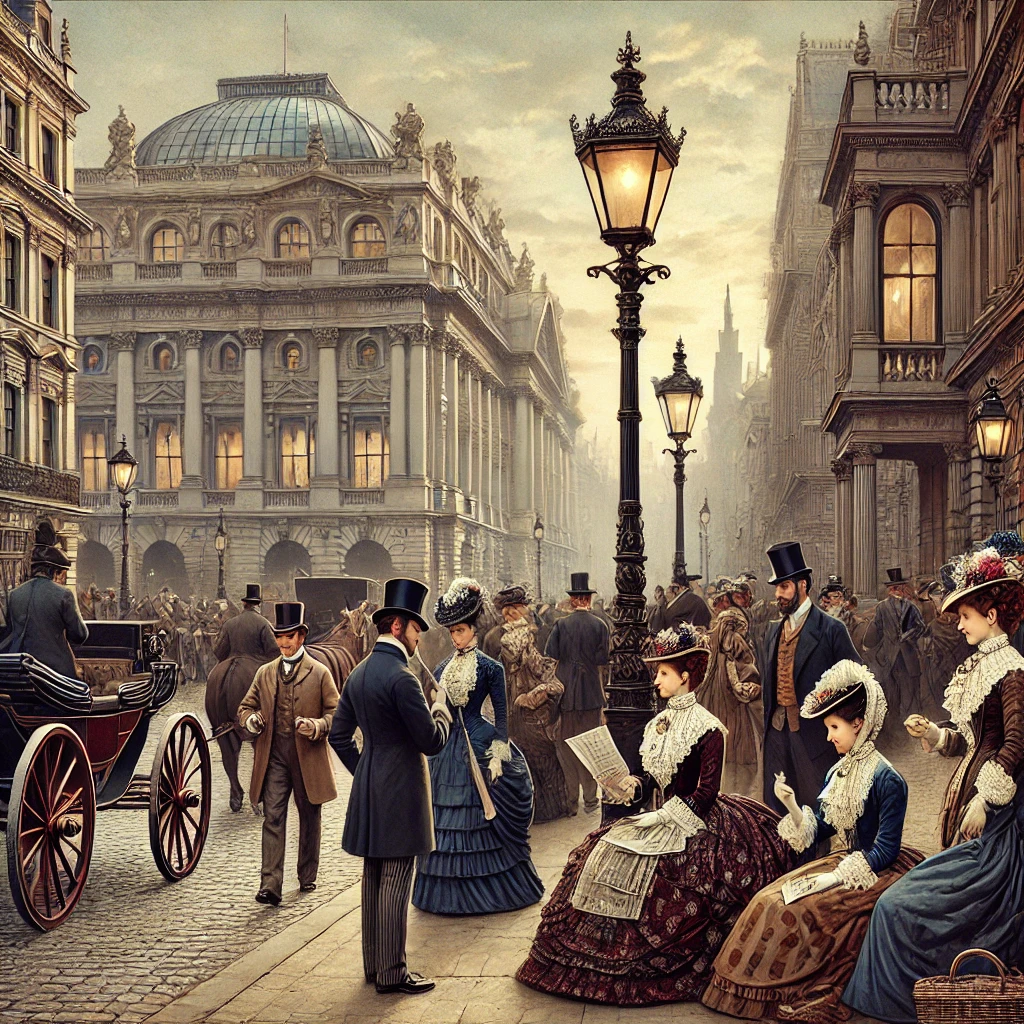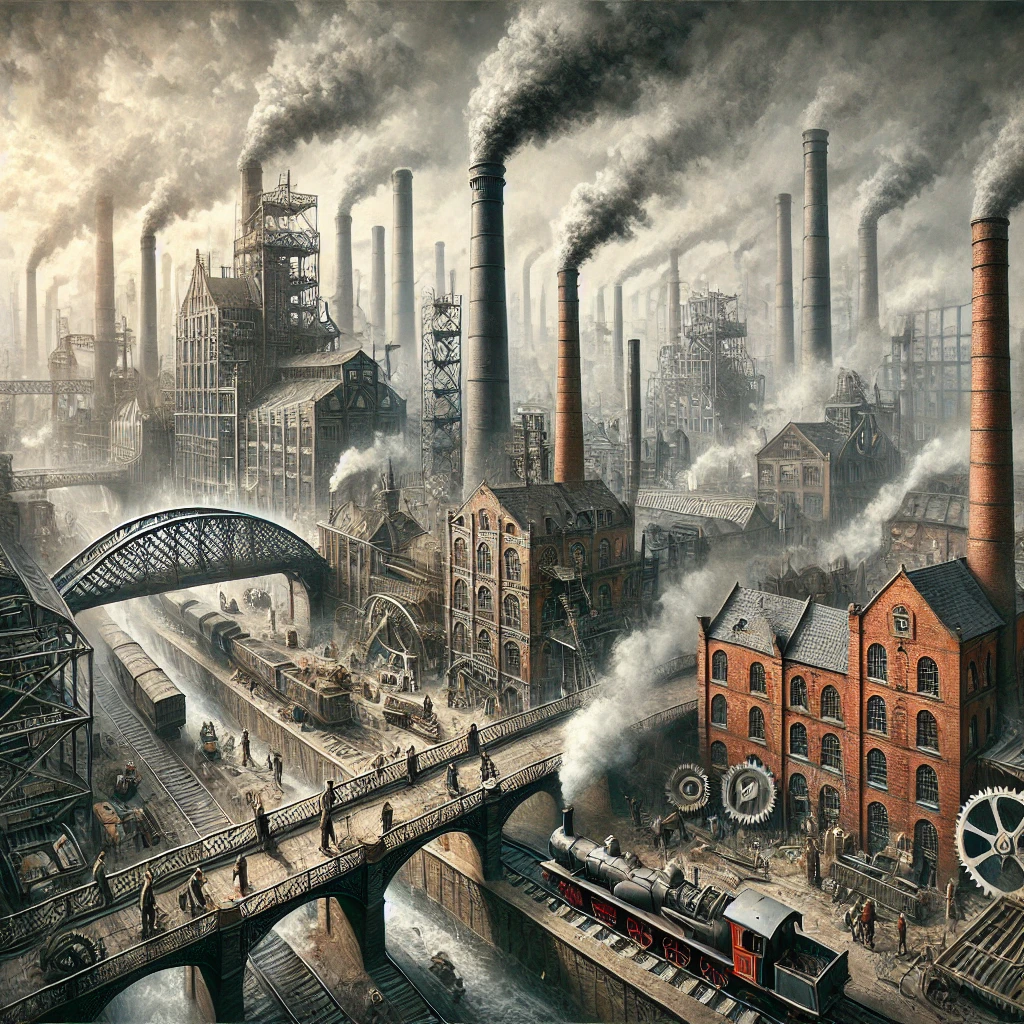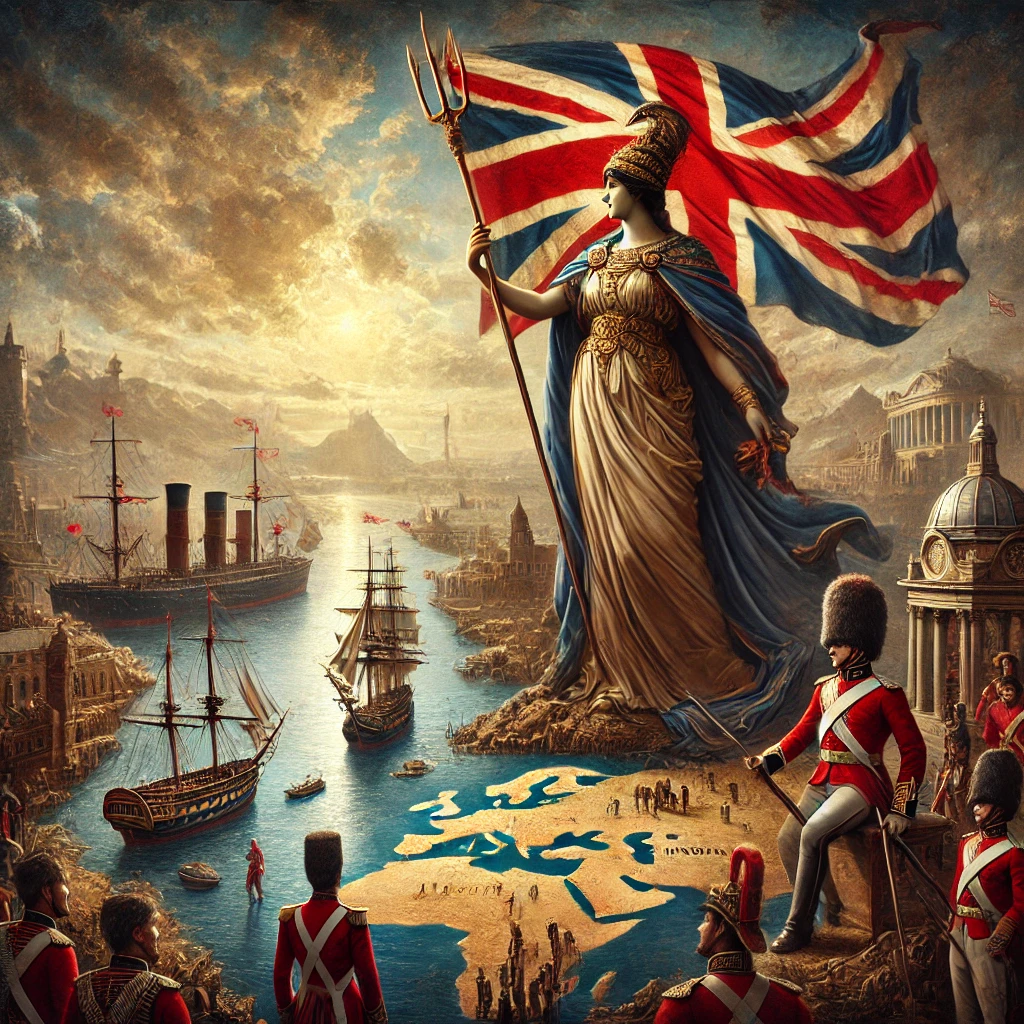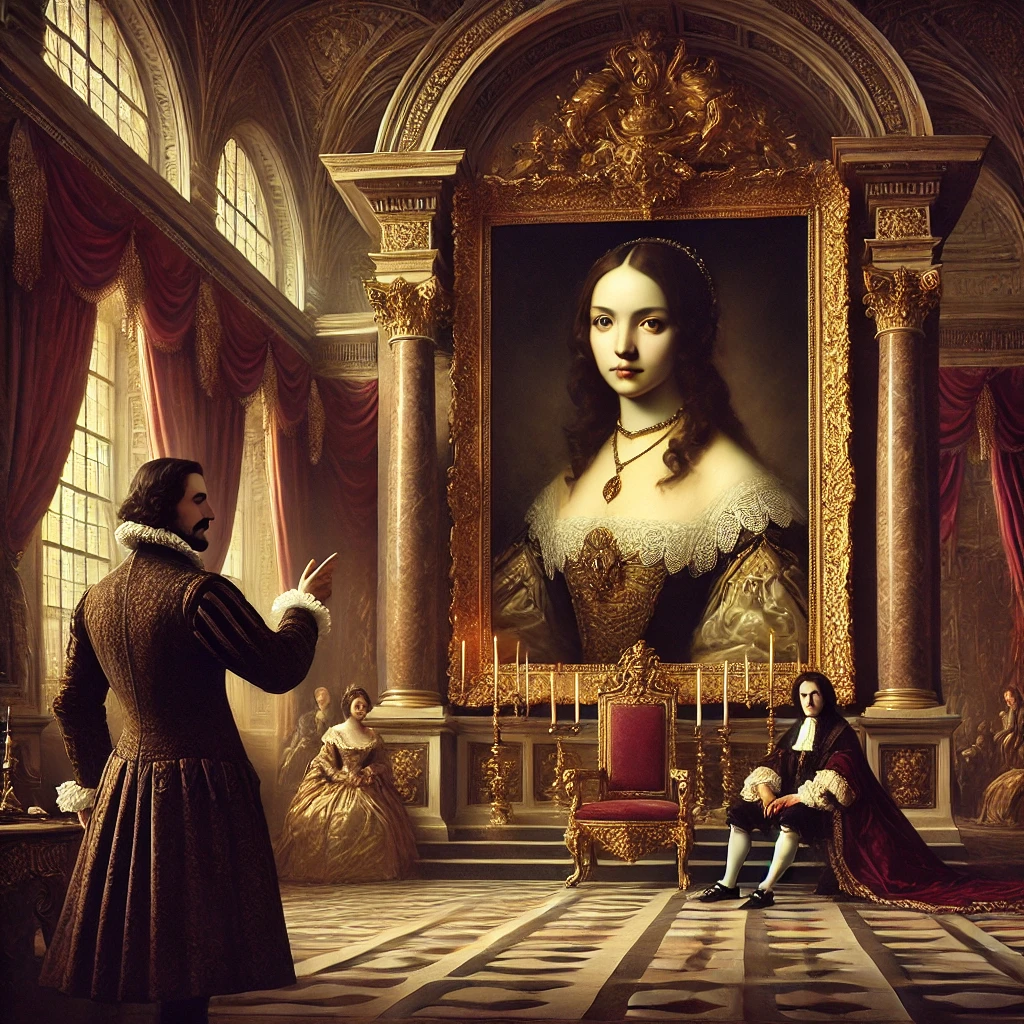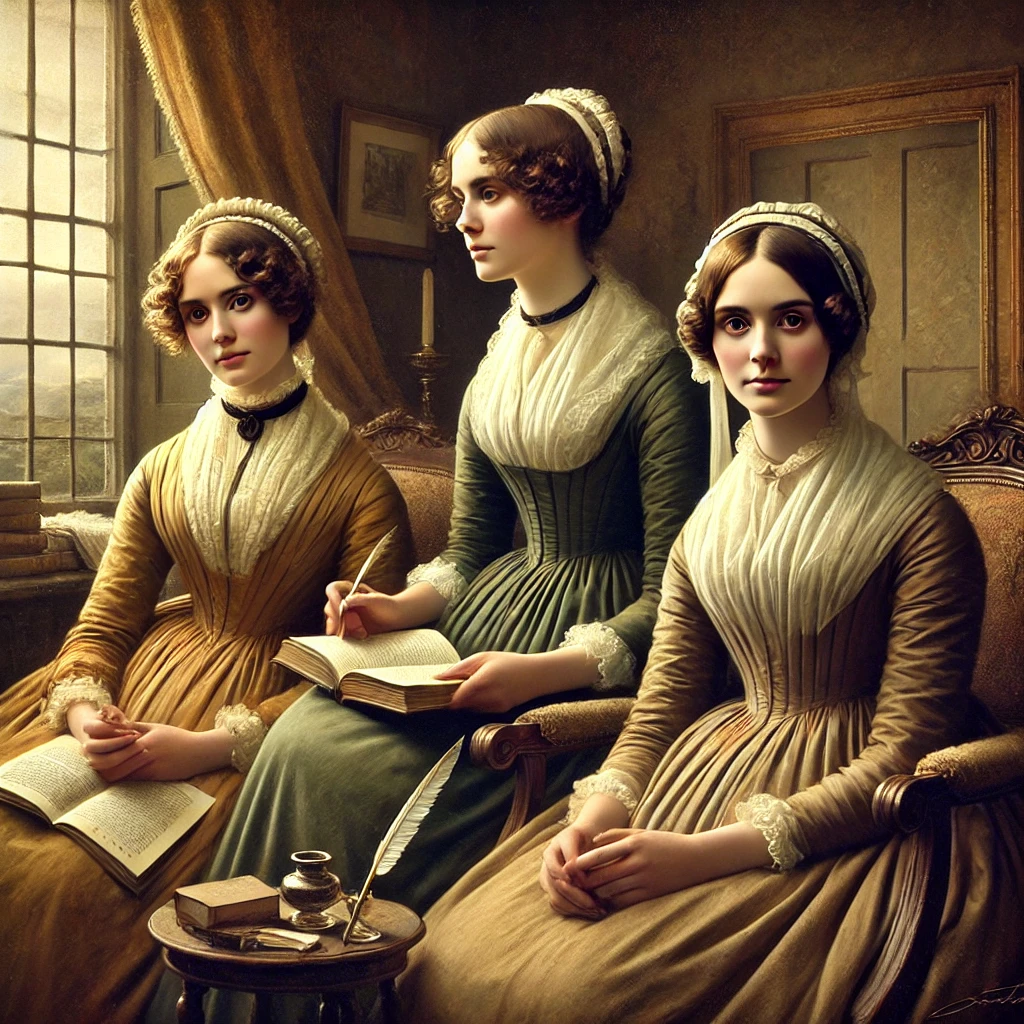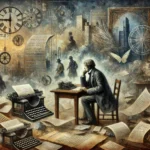By ABS, The Literary Scholar
A.K.A. The One Who Tiptoed Through Tea Parties, Fog, and Fictional Heartbreaks with a Quill
The Queen, the Crown, and a World That Couldn’t Sit Still
The Victorian Age officially began in 1832, just a few years before Queen Victoria herself ascended the throne in 1837—young, dainty, and utterly unaware she’d rule for 63 years and be responsible for an era so intense, it required multiple volumes of poetry, prose, petticoats, and railroads to explain.
By the time Victoria said “hello,” Britain had:
Colonized half the planet
Invented industrial gloom
Lost its religious certainty
Gained too many factory whistles
And published more novels than anyone could reasonably read (unless you were trapped in a train for weeks)
Before the Smoke, There Was a Bonnet: Jane Austen and the Bridging Years
While technically pre-Victorian, Jane Austen paved the way for the era’s obsession with:
Social class
Romantic miscommunication
Characters who couldn’t stop judging each other politely
“It is a truth universally acknowledged…”
That this sentence alone could summarize 70% of Victorian plotlines.
Austen’s world was still delicate, but her pen was sharper than a corset rib.
She gave us:
Mr. Darcy’s ego crisis
Elizabeth Bennet’s sass
Emma’s matchmaking disasters
And a society where dancing = destiny
Let’s be honest: She gave the Victorians their first taste of emotional drama served with wit and scones.
Enter the Poets: Brooding on Hills, Praying by Lamps, and Philosophizing Mid-Ode
If the Romantics cried over birds, the Victorians cried over progress.
Alfred, Lord Tennyson: Poetry’s Melancholy Showstopper
He wasn’t just the Poet Laureate—he was the man who could turn a walk in the garden into a national emotional event.
Tennyson gave us:
The Lady of Shalott, who saw the world through a mirror and died from unrequited art
“She left the web, she left the loom, / She looked down to Camelot”
(Great move artistically, bad move life-wise)
Ulysses, a retirement speech for emotionally complex adventurers
“To strive, to seek, to find, and not to yield.”
(Also the unofficial motto of overworked academics)
The Lotos-Eaters – where doing nothing became a spiritual calling
Tennyson’s poems were like epic Instagram captions for weary philosophers.
Each line was embroidered with longing, legacy, and a side of slow-motion grief.
Robert Browning: Victorian Poetry’s Plot Twist Machine
Where Tennyson whispered sorrowfully, Robert Browning shouted from the alley like a poetic detective novelist.
He loved:
Murder
Mystery
Psychological depth
And dramatic monologues where characters accidentally revealed they were insane
My Last Duchess is the original “This guy has red flags” poem:
“I gave commands; / Then all smiles stopped together.”
Translation: He definitely killed his wife, but he’s still very polite about it.
He also gave us:
Porphyria’s Lover – love, strangulation, and a calm narrator who definitely needs therapy
The Bishop Orders His Tomb – a bitter interior monologue about ecclesiastical interior design
The Grammarian’s Funeral – the world’s most intellectual eulogy
Browning didn’t just write poems—he crafted psychological case studies in iambic pentameter.
Elizabeth Barrett Browning: Love Sonnets and Literary Swoon
Mrs. Browning, apart from eloping dramatically with Robert, gave us:
Sonnets from the Portuguese, including:
“How do I love thee? Let me count the ways.”
The poetic equivalent of every love letter ever written
She was tender, lyrical, and probably the only Victorian woman who made swooning sound like a scholarly activity.
Matthew Arnold: The Literary Pendulum of the Age
Matthew Arnold was the poet of:
Melancholy
Disillusionment
And standing dramatically at the beach wondering where faith went
Dover Beach is basically the soundtrack of religious doubt:
“The Sea of Faith / Was once, too, at the full…”
His poetry sounded like:
Someone trying to believe
But also holding a scientific textbook and sighing heavily
He was the true poetic mascot of Victorian confusion: God or Darwin? Bible or Biology? Church or Chemistry?
Answer: Write poetry and look sad.
Meanwhile, in Fiction: The Novel Becomes Queen Victoria’s Real Competition
If the poets gave voice to spiritual dilemmas and epic grief, the novelists gave us:
Plot
Chaos
Social critique
And enough orphans to populate a Netflix series
The Victorians read novels the way we scroll reels—compulsively and often with biscuits.
Charles Dickens: The Man Who Invented 37 Main Characters Per Book
Charles Dickens was many things:
A serial wordsmith
A walking empathy machine
And a man who looked at London and thought, “Let’s write every single human in it.”
He gave us:
Oliver Twist – adorable orphan, dangerous gang, questionable child labor policies
Great Expectations – Pip, a boy with hopes and the worst love life in fiction
Bleak House – 187 characters, 22 subplots, and somehow… no confusion
David Copperfield – an autobiography dressed up as a coming-of-age melodrama
Dickens’s strengths:
Dialogue that sparkles like coal dust
Villains so vivid they practically hiss off the page
Names that belong in a game of Victorian Clue (Uriah Heep, anyone?)
And let’s not forget:
“It was the best of times, it was the worst of times…”
Still the only accurate way to describe any group project.
The Brontë Sisters: Gothic Queens with a Side of Thunder
The Brontë sisters lived together, wrote feverishly, and made 19th-century readers question their morals, their emotions, and their furniture choices.
Charlotte Brontë brought us Jane Eyre:
A governess
A brooding employer
A flaming attic
And the phrase “Reader, I married him.”
(Still stronger than most modern proposals)
Emily Brontë delivered Wuthering Heights:
Heathcliff, the human storm cloud
Catherine, the eternal heartbreak
And moors. So many moors.
“I am Heathcliff.”
No one’s sure what that means, but it’s tattooed on emotional English majors everywhere.
Anne Brontë (the quiet genius) gave us The Tenant of Wildfell Hall, which tackled:
Marriage
Addiction
Feminist independence
And got everyone mildly scandalized (so, success)
George Eliot: The Woman Who Had to Pretend to Be a Man to Be Taken Seriously
Mary Ann Evans became George Eliot because the Victorians trusted male authors with existential dread more than female ones.
She gave us:
Middlemarch – the literary equivalent of reading 800 pages and still wanting more
Silas Marner – a miser, a child, some gold, and a lot of emotional redemption
And the understanding that depth doesn’t need melodrama—it just needs moral confusion
William Makepeace Thackeray: The Original Snarky Narrator
His masterpiece? Vanity Fair—not a magazine, but a brilliant satirical novel with:
Becky Sharp (icon, grifter, survivor)
Zero real heroes
And one of the best closing lines ever:
“Come, children, let us shut up the box and the puppets, for our play is played out.”
Thackeray served social satire with a wink and wore cynicism like a waistcoat.
Themes of the Time: Science, Steam, and Spiritual Confusion
Let’s take a moment to appreciate how confused the Victorians were:
Science said: We’re evolving
Faith said: We’re sinning
Industry said: We’re winning
Poets said: We’re crying
Novelists said: We’re observing… all of it, at once
This was an age of:
Steam engines and soul searching
Child labor and charity balls
Factories and feelings
Even their furniture looked like it was in moral turmoil.
The Empire on Which the Sun Never Set (But the Ethics Definitely Did)
Ah, British Imperialism—that glorious era when the sun never set on the empire, mostly because the British were too busy planting flags to let it rest.
The Victorians weren’t just conquering emotions in literature—they were also conquering actual continents, and writing long-winded reports about how noble it all was.
They brought:
Railways (but only one seat for the locals)
English education (and then judged the accents)
Moral superiority (delivered with a musket and a monocle)
Novels of the time either:
Ignored it politely
Romanticized it awkwardly
Or occasionally questioned it in paragraphs so dense, even the Queen might have skipped them
It was the golden age of:
Colonial “civilizing missions”
Maps expanding faster than their moral compass could keep up
And of course, tea imported from nations who didn’t get to enjoy the ceremony
So yes, the sun never set on the British Empire.
But maybe—just maybe—it was because guilt doesn’t sleep either.
The Great British Paradox: Glory, Gloom, and Grammatical Overload
The Victorian Age was basically the world’s most intense group project, where no one agreed on what they were doing but still turned in 12 volumes of literary gold.
You had:
Empire abroad, ennui at home
Railways racing forward, and poets lamenting backward glances
Tea at 4, but existential crisis by 5
Everyone was either riding a steam engine or writing a tragic monologue about watching one depart.
And if you weren’t weeping by candlelight or suppressing your feelings under 12 layers of crinoline, were you even Victorian?
Literature as Lifestyle, Melancholy as Moodboard
Victorian literature didn’t just reflect life—it redecorated it in mahogany, narrated it with Biblical cadence, and slipped in moral messages like fortune cookies wrapped in 19th-century sentence structure.
Characters didn’t merely fall in love.
They emotionally wrestled with metaphysical destiny before sighing in the rain for three chapters.
Plot twists included:
Secret marriages
Forgotten heirs
Dying orphans (a lot of dying orphans)
Letters that conveniently arrived just after a scandal broke
And of course, someone always dramatically fainting at church
When Progress Felt Like a Panic Attack
This was a time when everyone believed in progress, but no one could define what it meant without also writing a poem about it.
Science boomed.
Faith trembled.
Steam billowed.
And somewhere between Darwin and Dickens, Britain realized that inventing the modern world was exhausting.
So they read novels—long, emotional, furniture-heavy novels—to cope.
Final Thoughts (With a Lace Handkerchief and a Slight Sigh)
In the end, the Victorian Age gave us grandeur with anxiety, empire with ambiguity, and literature that was both high-minded and highly entertaining.
They built railroads, mapped empires, questioned God, invented the tragic governess, and made it fashionable to suffer with syntax.
And that’s why we still read them—for the drama, for the depth, and for those glorious 67-word sentences about handshakes.
“Late Victorian Whisper”
And just when the Victorians had perfected the balance between empire, emotion, and embroidery…
Charles Darwin showed up with a fossil and a theory that quietly unraveled the divine footnotes.
Darwin Didn’t Write Novels—He Just Traumatized Them
In the midst of moralizing governesses, industrial fog, and novelists who could describe a mantelpiece for three pages, along came Charles Darwin—and promptly evolved the entire literary landscape.
When he published On the Origin of Species in 1859, Darwin wasn’t aiming to rewrite literature. But Victorian writers, ever the anxious overthinkers, immediately began to see:
Nature as indifferent
Humanity as unsupervised
And God as mysteriously quiet during office hours
Darwin introduced “Survival of the Fittest,” and literature responded with:
Heroines who married to avoid homelessness
Characters who drowned in metaphorical and actual swamps
And plots where the fittest weren’t always the kindest—just the best adapted to their genre
Victorian fiction, once so sure of divine justice, now stared into the abyss of biology and whispered,
“Wait… so you’re saying it’s not fate, it’s… competition?”
Darwin didn’t kill God in literature—but he gave Him some very uncomfortable footnotes.
Final Scroll:
ABS gently places a velvet bookmark in the last volume, tilts a top hat to the sky, and vanishes into the steam rising from a fictional train platform—where someone is always arriving, always departing, and always feeling too much.
Where steam rose, souls wandered. And somewhere between the factory smoke and the flicker of candlelight, literature remembered how to ache with elegance.
Signed,
ABS, The Literary Scholar
By ABS, The Literary Scholar
A.K.A. The One Who Took a Wrong Turn in Wessex and Ended Up in the Wasteland
Share this post / Spread the witty word / Let the echo wander / Bookmark the brilliance

